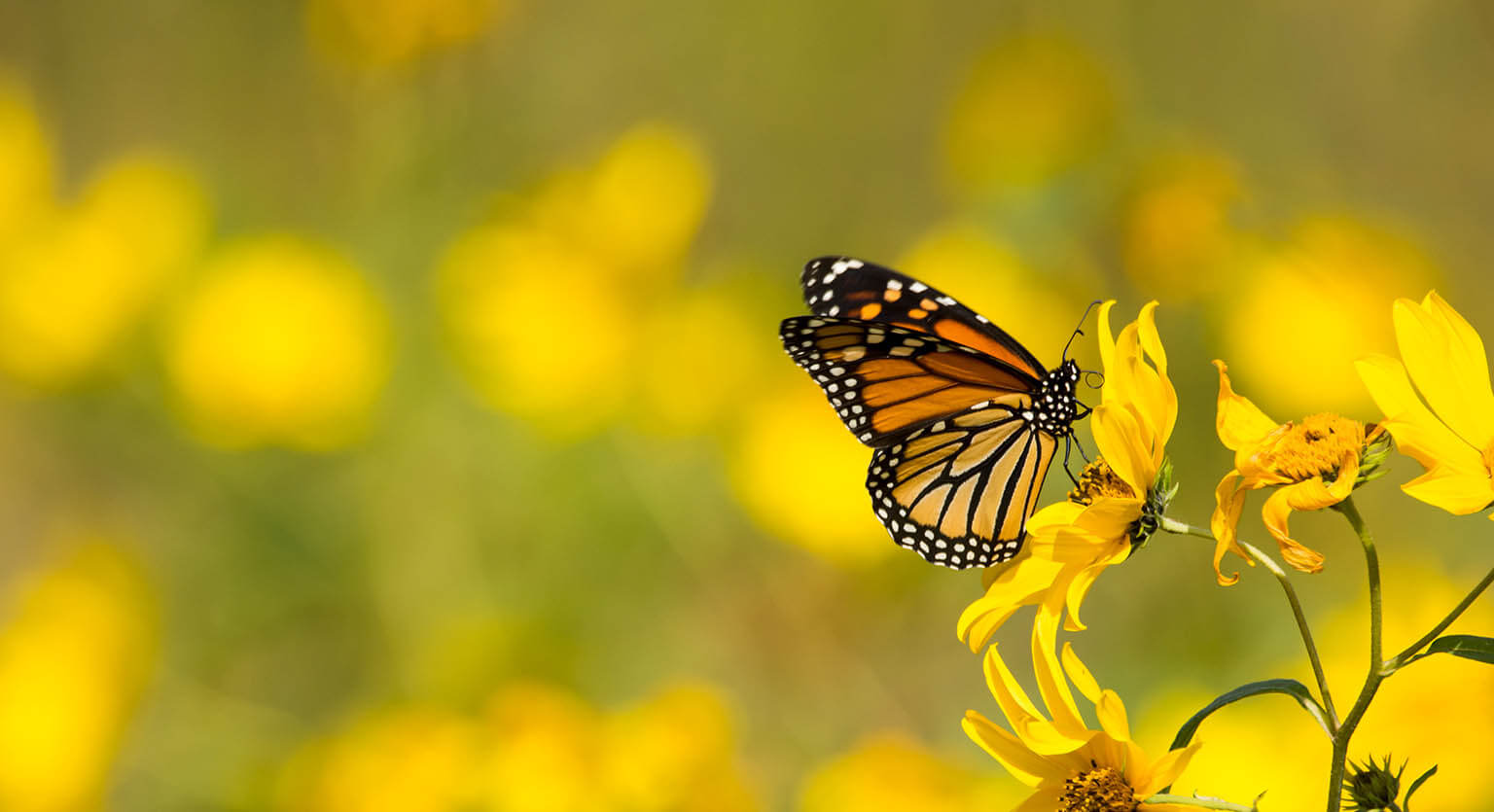Have you ever been made an offer you couldn’t refuse? If asked this question just a few short months ago, it would have taken some deep reflection before I could answer. Truth be told, I don’t know if I would have been able to say I have. That is, until Maria College’s Mission Office was informed of an initiative spearheaded by the Mercy Ecospirituality Center called the Mercy Monarch Milkweed Project. A quick Internet search brought me to the Project’s webpage where I was greeted with the invitation, “You are invited to help save the monarch butterfly.”
The monarch butterfly, which many of us may hold fond childhood memories of, is among a species at risk of becoming extinct. According to the Center for Biological Diversity, the monarch population has declined more than 80% since the mid-1990’s. Unfortunately, mankind is largely in part to blame for this decline; specifically, our increased use of insecticides, harmful land management and industrialization, and climate change are having the largest impact. As a result, North America has also experienced a dramatic reduction in the milkweed plant, the primary source of food for the caterpillars that transform into monarchs. Simply put, monarchs cannot exist without milkweed.
Monarchs have deep cultural meanings, which we will learn more about through blog posts like these over the course of this year, but they are also integral in assisting with pollination of the fruits and vegetables that many of us consume. In fact, according to the Mercy Ecospirituality Center, studies show that monarchs are responsible for one in every three bites of food that we eat!
About that offer that that couldn’t be refused? The Care of the Earth Committee, overseen by Victoria Battell, Dean of Students and Chief Mission Officer, is thrilled to announce an expansion of the Maria Garden which will include a Monarch Habitat. Maria’s Monarch Habitat will include milkweed plants native to the area, as well as nectar and host plants that the butterflies will be able to consume from. Habitats of this nature are integral in supporting the monarch population as they migrate between North and South America each year.
The Maria Garden, located outside of the Frank E. O’Brien Jr. Student Support Center, stocks the Maria Market Food Pantry with fresh produce during the summer and fall months. Maria’s Monarch Habitat will be a welcomed addition to the campus community and will soon be registered officially within the Mercy Monarch Habitat Network.
To learn about steps that you can take for saving the monarch butterfly at home, or in your community, visit the Mercy Ecospirituality Center.
With very good wishes and on behalf of the Care of the Earth Committee,
Andrew Ledoux
Associate Vice President for Student Affairs
